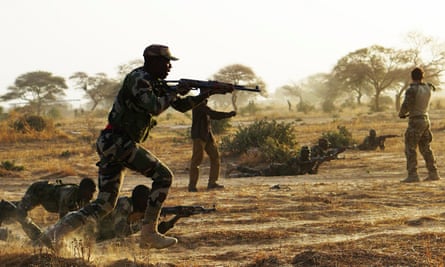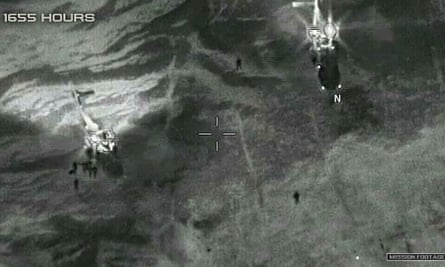A Brief Colonial History Of Ceylon(SriLanka)
Sri Lanka: One Island Two Nations
A Brief Colonial History Of Ceylon(SriLanka)
Sri Lanka: One Island Two Nations
(Full Story)
Search This Blog
Back to 500BC.
==========================
Thiranjala Weerasinghe sj.- One Island Two Nations
?????????????????????????????????????????????????Friday, August 7, 2020
Niger lost tens of millions to arms deals malpractice, leaked report alleges
Government audit alleges that poor west African country lost at least $137m over eight years
 |
Nigerien soldiers riding a truck outside Agadez. The country is an important ally for local and western powers fighting an Islamic extremist insurgency. Photograph: Zohra Bensemra/Reuters
Jason Burke Africa correspondent-Thu 6 Aug 2020More than $100m of public money in Niger, one of the world’s poorest countries and a key regional recipient of western aid, was wasted in a series of potentially corrupt international arms deals, a leaked official document alleges.
A confidential government audit of defence spending found that at least $137m had been lost due to malpractice over an eight-year period ending in 2019.
The report by the Inspection Générale des Armées, an independent body that audits Niger’s armed forces, said much of the equipment sourced from international firms in Russia, Ukraine, China and elsewhere was overpriced, had not been delivered or had been purchased without going through a genuine competitive bidding process.
In some instances, it alleges, documents had been forged and false companies set up, apparently to comply with regulations.
According to the Organized Crime and Corruption Reporting Project, an independent investigative reporting platform that obtained the 53-page audit, more than $320m worth of deals out of a total of $875m were problematic. The OCCRP shared its findings with the Guardian before publication.

Nigerien service members during a Flintlock exercise with US troops in Diffa in 2017. Photograph: EPA
Public prosecutors in Niger are investigating the findings, which have become part of a bitter political battle before presidential and legislative elections scheduled for later this year. Opposition politicians hope the scandal will weaken the ruling party and its likely candidate, Mohamed Bazoum, the defence minister.
The scandal has prompted a series of public protests and strikes in Niger despite government promises to recover the lost funds, punish any “public agents” responsible and introduce wide-ranging reforms.
The audit was handed to Niger’s most senior prosecutor in April, who said at the time that those involved would be held accountable. The audit gives figures in euros and West African CFA francs, which were converted to dollars by the OCCRP.
In one deal in 2016, Niger’s ministry of defence bought two Mi-171Sh military helicopters from Rosoboronexport, Russia’s state-owned defence company. The auditors questioned the price of €55m ($62m), which also included maintenance and ammunition, saying they had been unable to explain why the sum appeared to them to be inflated by $19.7m.
The auditors noted that the contract was negotiated by direct agreement without competition in 2016 and questioned the decision to conclude a deal with a company that is under US sanctions. They were also concerned that around €17.6m had been added to the overall package to cover optional extras. This was the equivalent of acquiring an additional helicopter, they noted. A Rosoboronexport spokesperson declined to answer OCCRP’s emailed requests for comment.
In another deal mentioned in the audit, $4.9m was paid to outfit the presidential plane with an anti-missile system that was described by auditors as “ineffective”.
Despite its deep poverty, Niger has spent heavily over the last decade on arms ranging from attack helicopters and fighter jets to armoured vehicles and automatic rifles. The country’s new military capabilities and its strategically significant location in the Sahel region have made it an important ally for local and western powers fighting a tenacious Islamic extremist insurgency.
Hundreds of Nigerien troops have been killed in a series of massacres in the conflict. In 2017, five died alongside four US special forces soldiers in an ambush by militants linked to Islamic State. There have been repeated complaints that troops lack correct equipment and training, and receive poor rations and pay.

A video released by the US defence department shows two French helicopters evacuating US service members after an ambush in Niger in October 2017. Photograph: AP
Niger has received huge sums in development and humanitarian aid from the US, as well as hundreds of millions dollars in military assistance and payments for humanitarian operations from the US during the period examined by the auditors.
In a briefing this week, Maj Gen Dagvin Anderson, the commander of US Special Operations Command Africa, described Niger as “a shining example of a partner who may not have a lot of resources but has the will to take what … is provided to them by the international community and use it to great effect”.
France sees Niger as a priority country for humanitarian and development assistance, while the UK has given some minor aid too.
Many of the suspect deals revealed by the report involve a small number of well-connected businessmen with close ties to Niger’s government. “All the economic actors mentioned in the audit belong to the ruling party. They come from the same region as the president,” said Hassane Diallo, the head of Centre d’Assistance Juridique et d’Action Citoyenne, a Niger-based anti-corruption group.
The government said the country’s armed forces had never been so well equipped.
According to the audit, as well as a previous investigation conducted by the ministry of finance in 2017, contracts to supply military equipment to the armed forces, including weapons and ammunition, night-vision goggles and a trailer for transporting tanks, may have cost the defence ministry $24.7m more than they should have done.
Investigators also examined a $40m agreement to purchase Chinese armoured personnel carriers. They believed the price had been inflated by $8.2m.
In 2017 a Nigerien company won a $6.5m contract to supply 30 buses to the ministry of defence. More than half of the payment was questionable, the auditors found.
Other contracts used shell companies in Ukraine, the UK and the Czech Republic in an apparent effort to avoid scrutiny of multimillion-dollar payments connected to deals, the auditors found.
Diallo said the deals “not only exposed a hidden financial cost to Niger – the poorest country in the world – but also show how Niger’s sovereignty was captured and exploited”.
Niger ranks last out of 189 countries on the United Nations Development Index, with an average life expectancy of 62 and an average per capita income of less than $1,000 annually.

